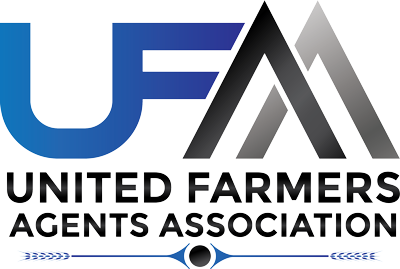Steven White, NASFA VP of Marketing
This article originally appeared in The Mirror, Spring 2019, and is reprinted with permission of the National Association of State Farm Agents. ECRM is State Farm’s Electronic Customer Relationship Management Program.
I have visited with several agents recently. The same question comes up almost every time: “How are things going for you?” My response, “I guess it’s going okay,” seems to be the most fitting answer. I could give a more positive response, but it would not be honest. Is anyone really surprised by this? One agent told me it just wasn’t fun anymore. Our day-to-day activities are evolving rapidly, creating both challenges and uneasiness as we adjust.
I understand the concerns these agents have shared with me. How will all these changes ultimately impact our businesses and futures? IT appears that the biggest shift in this new world of Agency is our mindset. Agency has always been forced to deal with change, and every few years a new season of adjustment comes sweeping through. Some changes are positive, while others ended up in the “flavor of the month” trash bin.
Our corporate culture has been transformed and the evidence is everywhere. I’ve come to understand that when agents reminisce, “In the past, we…,” it means they miss their relationship with the company to which they dedicated their lives. They miss the company that valued agents as frontline underwriters and looked to agents as partners in growing the business. Sadly, this feeling of partnership no longer exists except in corporate talking points. I understand that change has occurred but many days I struggle to appreciate it. This era of change feels like a tidal wave, redefining our relationships to the company and even our policyholders. Rollouts of new applications are connecting the customer directly to the company and less to the agent. The most recent ECRM update video makes this abundantly clear. Our agency world has changed, and more changes are on the way.
As these new ways of doing things are rolled out, they often reveal a lack of preparation or worse, a lack of concern of the impact on agent’s offices. Too often, replacement processes are released into the field at large before the bugs are worked out. The new ECRM software has seen its share of required updates to work out the kinks. I acknowledge my limitations with technology and implementation, but the pilot programs should give an indication of the system’s readiness for mass distribution. Agencies must, and do, roll with whatever comes at us.
I am cautiously optimistic about the full implementation of this new ECRM operating system. Like many, I realize the road is going to be bumpy and frustrating, and present challenges for agency and operations alike. Here’s my question to anyone reading this article. Do you have any other options but to change and adjust to ECRM? If you do, please let me know so I may consider them. If not, my office will adapt to the ECRM world out of necessity. I am not sure what will be included with this next version, but I am fairly certain there will be many more incarnations to follow. I agree with those of you who have expressed frustration regarding training, or lack thereof, with ECRM rollouts. I had a fellow agent explain to me that personal assistance is for “SL approved” agents only, and the rest get videos or chars. She might be right.
My office is adjusting as needed and we are learning in every way available, mostly through trial and error. Here’s what I understand about ECRM. It is not going away and it’s not designed to help Agency. It is getting adapted to help the company control more aspects of information regarding our policyholders while connecting directly with them.
In late 2018, I found myself visiting with a man who had grown up, unbeknownst to me, in a SF agent home. He shared personal memories of the agency picnics, agent trips, and the family atmosphere surrounding everything involving the company. His face lit up with joy as he remembered the past. As he smiled and shar3ed a few of his favorite memories I found myself feeling a little bit envious of what he referred to as “the good old days.”
Yes, times change, yet seldom can the present compete with memories of the past. If you are struggling, hang in there and know there are many agents who feel the same. Who knows? Maybe it will turn out better than it feels right now. I am hoping it does for all involved.
Homeowner Security and Safety
You’ve all been there, your longtime client’s son or daughter is buying their first home and you are writing their homeowners policy. They may not think of it, so reminding them to change the locks, all the locks, might help them out. You never know who the previous owners lent or gave keys too not to mention during the sales process realtors, inspectors, potential buyers, and workmen are in and out of the house. Many times these individuals are allowed the use of the door keys unsupervised. (This covers outside doors, garage doors and shed doors. Changing the garage door opener code is also suggested)
What about calling the local police department for a home security inspection? Local law enforcement agencies will review your home’s security and make suggestions on where to make improvements.
Most neighborhoods have a neighborhood watch program. Inquiring about the program and becoming active in neighborhood and community activities will allow you to meet your neighbors and will give you an idea who belongs and who doesn’t.
Most thieves look for easy targets, so don’t help them. Install ample lighting around outside doors and cut back shrubs and trees from pathways. Don’t give that thief a place to hide. Keep garage and shed windows covered and locked. Don’t leave tools, extra bricks or toys in the yard. These can be used to break into your home.
All homeowners should know where the main water and gas supply shutoff valves are for their house. This knowledge could prove to be very important in the case of an emergency. Each plumbing fixture should have its own shut off valve as well.
If the new house is 1-1/2 or more story house are there 2 ways out from the upper floors in case of a fire? If the primary way is blocked by fire or smoke, you will need a second way out. A secondary route might be a window onto an adjacent roof or using an Underwriter’s Laboratory (UL) approved collapsible ladder for escape from an upper story window. Make sure that windows are not stuck and that the screens can be taken out quickly and security bars can be opened.
Make sure everyone can open all locks from the inside of your home. Replace inside-key locks with deadbolt locks that have a “Thumb Turn” instead or attach the door key so that it cannot be lost, but not seen or reached from a broken window. Have window locks that open from the inside and NEVER nail windows shut.









